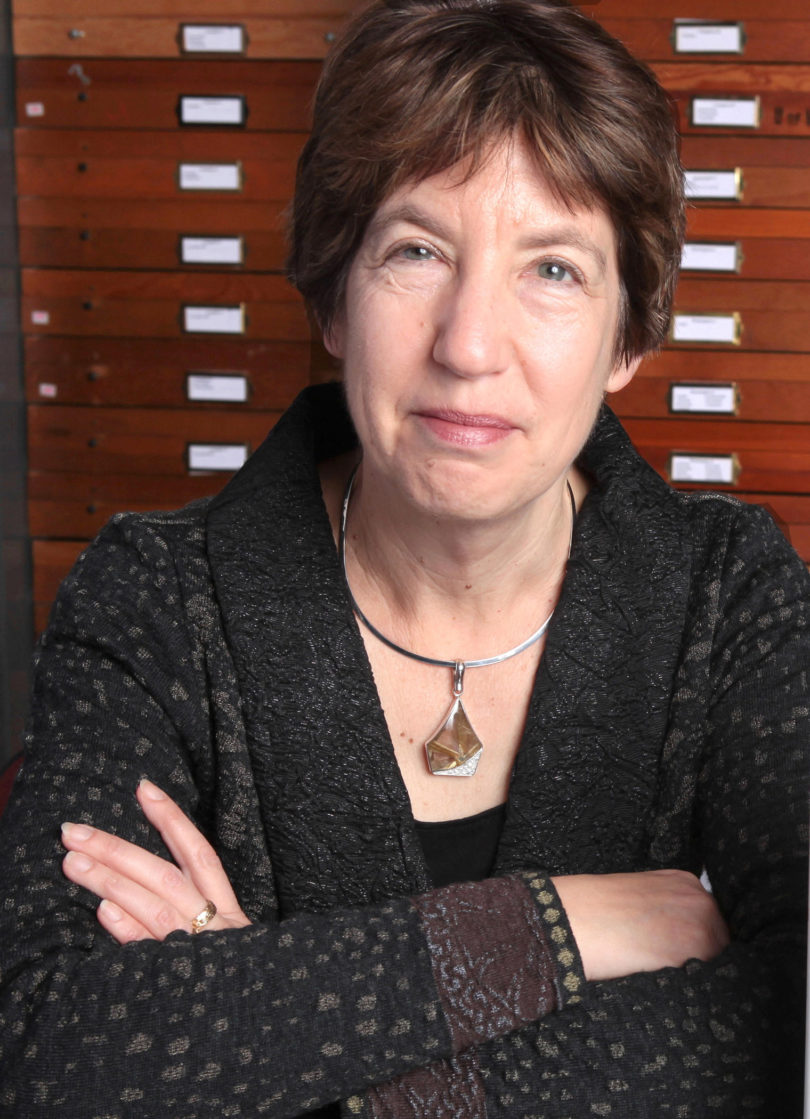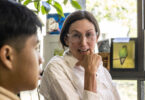Athens, Ga. – Marlene Zuk, professor of biological sciences at the University of Minnesota, will deliver the 29th annual Odum Lecture in the University of Georgia Odum School of Ecology on April 1 at 4 p.m. in the ecology auditorium. Her presentation, “Rapid Evolution in Silence: Adaptive Signal Loss in the Pacific Field Cricket,” will be followed by a reception at 5 p.m.
The next day Zuk will give a second talk, “Gender, Science and Myths of Merit,” at 8 a.m. in the auditorium. Coffee and pastries will be available before the presentation starting at 7:30 a.m. The talk is co-sponsored by the UGA Graduate School and Center for Integrative Conservation Research.
Both events are free and open to the public.
Zuk is a leading expert in behavioral ecology and evolutionary biology. While still a graduate student, she proposed, with W.D. Hamilton, a role for parasites in supporting the “good genes” hypothesis of sexual selection, namely that females select mates based on showy traits such as bright plumage or elaborate ornaments that indicate robust health and resistance to parasites. These mating preferences would increase the chance that offspring acquire genes that confer higher survival and disease resistance.
Her recent research has focused on how natural and sexual selection influence animal behavior and physical characteristics and also on how host-parasite interactions affect animal behavior, evolution and ecology.
Zuk has spoken and written extensively on a number of broader issues, including gender bias in the sciences.
“Across the life sciences, women have earned a growing fraction of the Ph.D.s during the past several decades, but this has not translated into similar-sized increases in the proportion of women in faculty-level positions,” said Sonia Altizer, associate dean in the Odum School.
This is a topic of particular interest to many in the Odum School. Last year, a team of ecology doctoral students took second place in a contest sponsored by the National Science Foundation with an essay on “Retaining Women in STEM (science, technology, engineering and mathematics) Careers” that offered a set of practical ideas for addressing the problem.
Zuk is a Fellow of the National Academy of Sciences and the American Association for the Advancement of Science and the recipient of many honors including the Sigma Xi National Lectureship and the National Science Foundation Young Investigator Award.
Besides more than 100 peer-reviewed papers, Zuk has written numerous articles and books for the popular press. Her books include “Sex on Six Legs: Lessons on Life, Love and Language from the Insect World;” “Sexual Selections: What We Can and Can’t Learn About Sex from Animals;” and most recently “Paleofantasy: What Evolution Really Tells Us About Sex, Diet and How We Live.”
“It is an honor to host one the leading researchers and communicators in the world, Dr. Marlene Zuk, for the Odum Lecture,” said John Gittleman, dean of the Odum School. “Dr. Zuk is not only known for her influential work on the conflict between sexual and natural selection but has that unique and rare ability—with the likes of Julian Huxley, Richard Dawkins and Stephen Gould—to accurately communicate complex science into compelling, understandable and fun stories. We’re very excited to welcome her to the Odum School.”
Honoring the founder of the Odum School of Ecology, the annual Eugene P. Odum Lecture Series features speakers who address significant ecological questions in broad social and intellectual contexts. The 27 previous Odum lectures have been delivered by preeminent scholars including ecologists Mary Power, Thomas Schoener and Stephen Pacala, biologists Gretchen Daily and Jim Brown, botanist Peter Raven, conservation ecologist Thomas Lovejoy and then-director of the National Science Foundation Rita Colwell.
The Odum Lecture is supported in part with funding from the Eugene P. and William E. Odum Endowment. For more information on the Odum School of Ecology, see http://www.ecology.uga.edu/.







